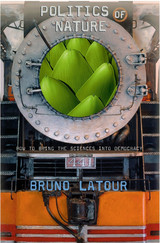
Collins explores how digital technologies and the convergence of literary, visual, and consumer cultures have changed what counts as a “literary experience” in phenomena ranging from lush film adaptations such as The English Patient and Shakespeare in Love to the customer communities at Amazon. Central to Collins’s analysis and, he argues, to contemporary literary culture, is the notion that refined taste is now easily acquired; it is just a matter of knowing where to access it and whose advice to trust. Using recent novels, he shows that the redefined literary landscape has affected not just how books are being read, but also what sort of novels are being written for these passionate readers. Collins connects literary bestsellers from The Jane Austen Book Club and Literacy and Longing in L.A. to Saturday and The Line of Beauty, highlighting their depictions of fictional worlds filled with avid readers and their equations of reading with cultivated consumer taste.

A Guardian Best Book of the Year
“A gripping study of white power…Explosive.”
—New York Times
“Helps explain how we got to today’s alt-right.”
—Terry Gross, Fresh Air
The white power movement in America wants a revolution.
Returning to a country ripped apart by a war they felt they were not allowed to win, a small group of Vietnam veterans and disgruntled civilians who shared their virulent anti-communism and potent sense of betrayal concluded that waging war on their own country was justified. The command structure of their covert movement gave women a prominent place. They operated with discipline, made tragic headlines in Waco, Ruby Ridge, and Oklahoma City, and are resurgent under President Trump. Based on a decade of deep immersion in previously classified FBI files and on extensive interviews, Bring the War Home tells the story of American paramilitarism and the birth of the alt-right.
“A much-needed and troubling revelation… The power of Belew’s book comes, in part, from the fact that it reveals a story about white-racist violence that we should all already know.”
—The Nation
“Fascinating… Shows how hatred of the federal government, fears of communism, and racism all combined in white-power ideology and explains why our responses to the movement have long been woefully inadequate.”
—Slate
“Superbly comprehensive…supplants all journalistic accounts of America’s resurgent white supremacism.”
—Pankaj Mishra, The Guardian

A major work by one of the more innovative thinkers of our time, Politics of Nature does nothing less than establish the conceptual context for political ecology—transplanting the terms of ecology into more fertile philosophical soil than its proponents have thus far envisioned. Bruno Latour announces his project dramatically: “Political ecology has nothing whatsoever to do with nature, this jumble of Greek philosophy, French Cartesianism and American parks.” Nature, he asserts, far from being an obvious domain of reality, is a way of assembling political order without due process. Thus, his book proposes an end to the old dichotomy between nature and society—and the constitution, in its place, of a collective, a community incorporating humans and nonhumans and building on the experiences of the sciences as they are actually practiced.
In a critique of the distinction between fact and value, Latour suggests a redescription of the type of political philosophy implicated in such a “commonsense” division—which here reveals itself as distinctly uncommonsensical and in fact fatal to democracy and to a healthy development of the sciences. Moving beyond the modernist institutions of “mononaturalism” and “multiculturalism,” Latour develops the idea of “multinaturalism,” a complex collectivity determined not by outside experts claiming absolute reason but by “diplomats” who are flexible and open to experimentation.
READERS
Browse our collection.
PUBLISHERS
See BiblioVault's publisher services.
STUDENT SERVICES
Files for college accessibility offices.
UChicago Accessibility Resources
home | accessibility | search | about | contact us
BiblioVault ® 2001 - 2024
The University of Chicago Press









